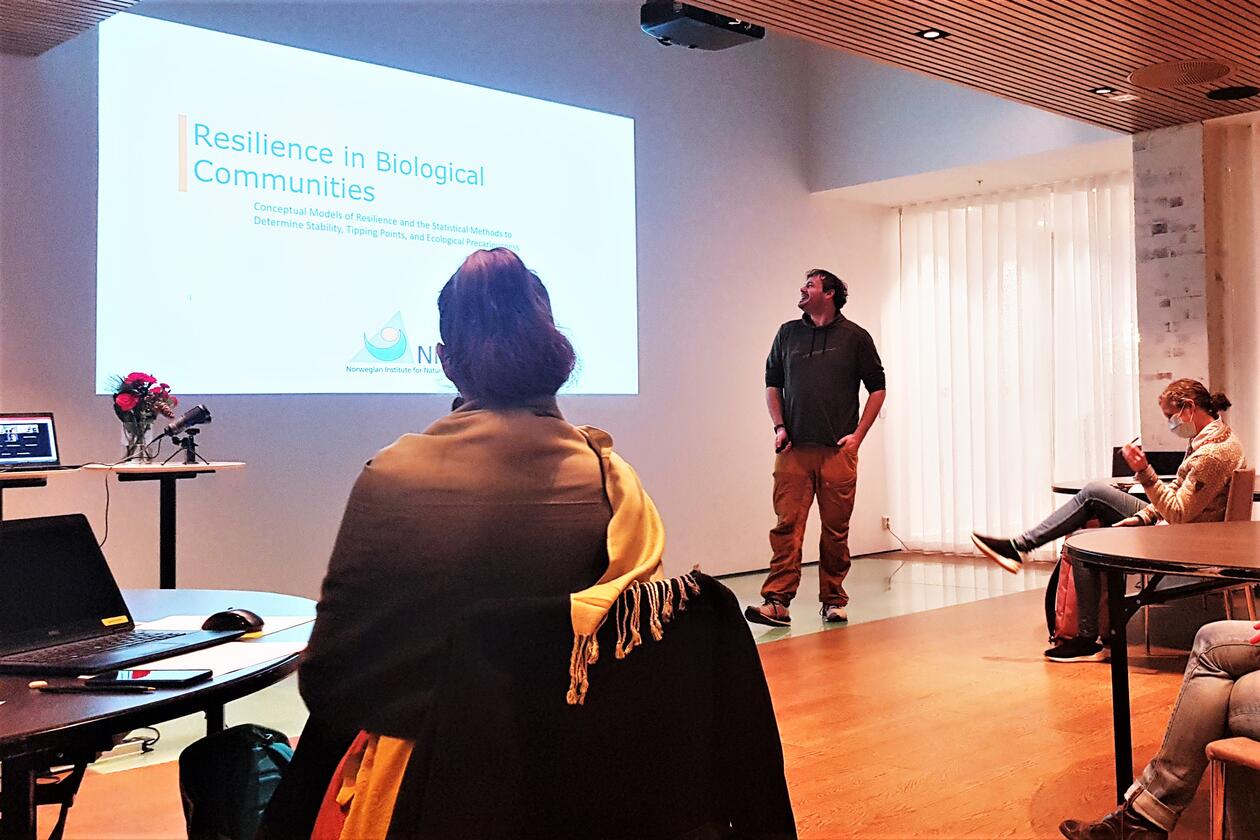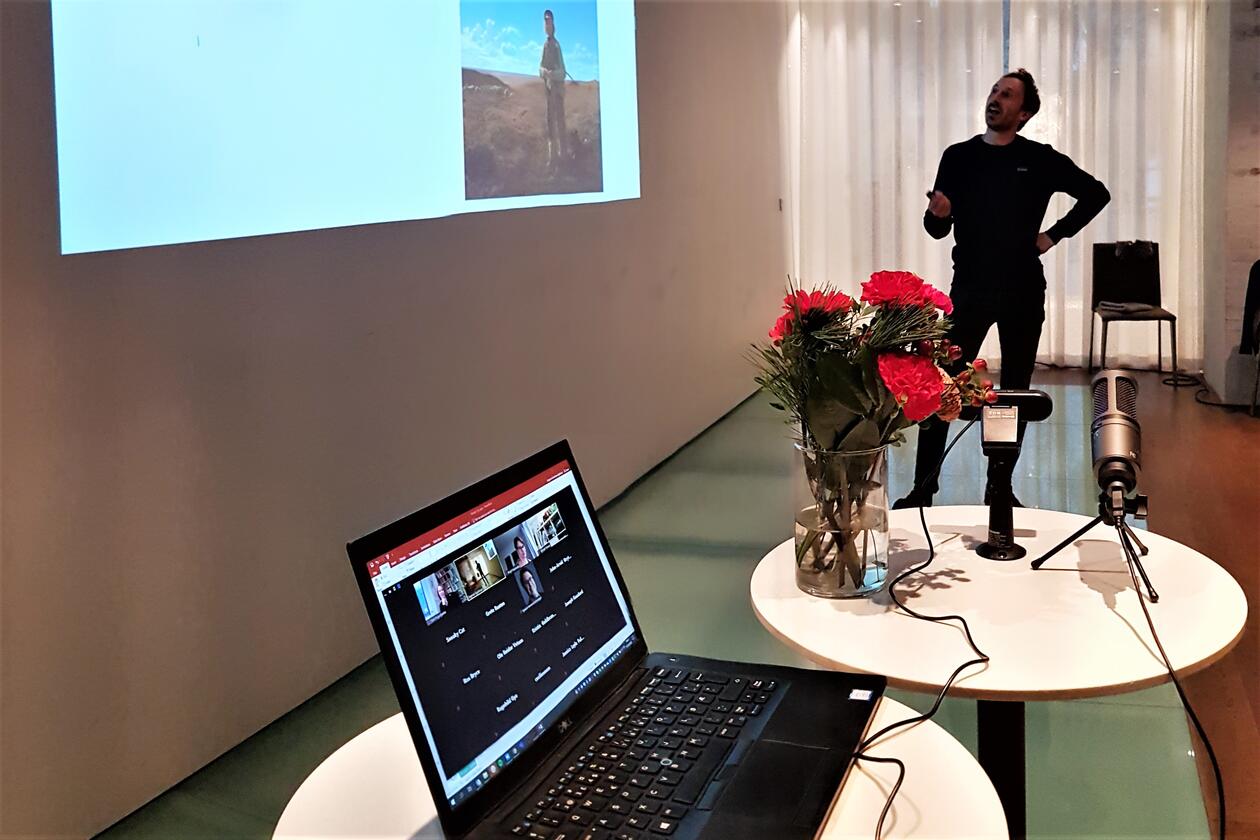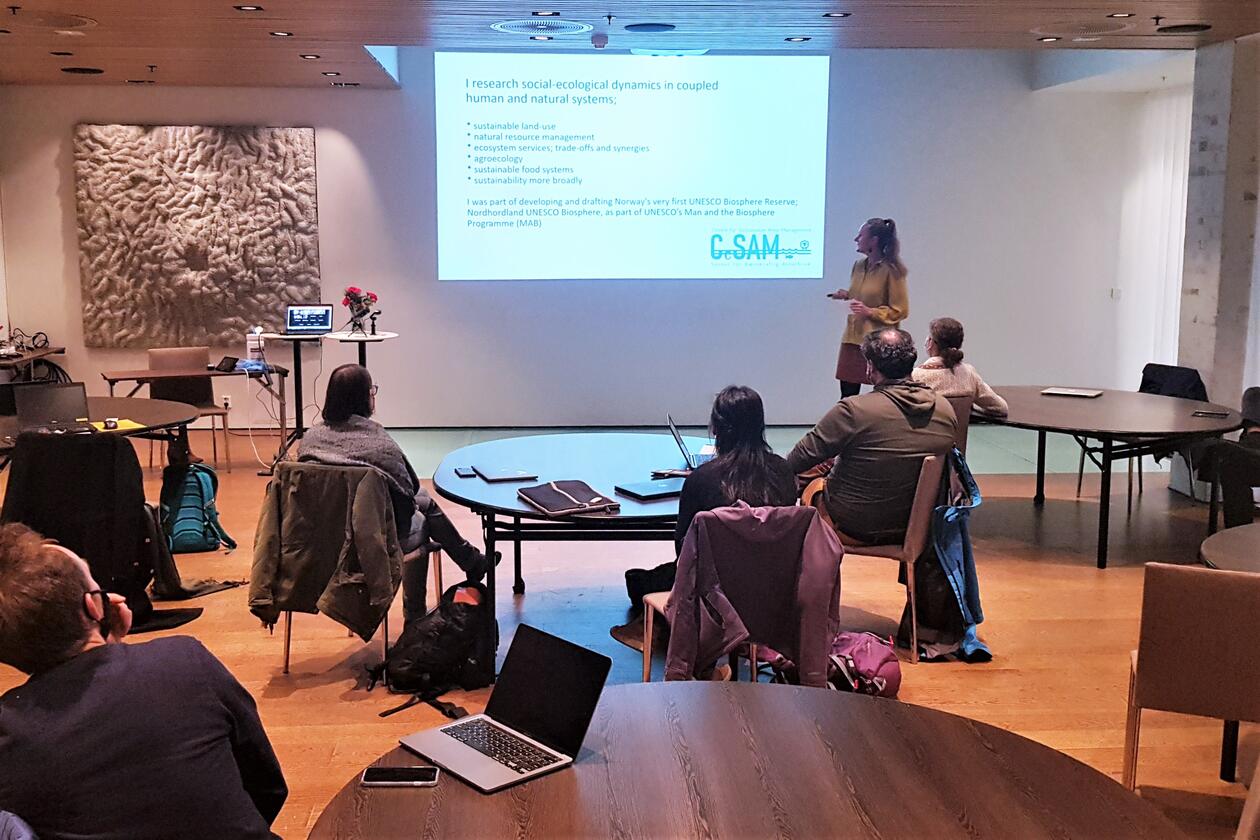CeSAM's first annual meeting
CeSAM is a UiB initiative to gather and coordinate research and education of relevance to the management of our land and marine areas. Many of the big challenges of our time - climate crisis, biodiversity crisis, health, food, societal planning - meet in the decision-making around spatial planning, and we are really seeing these issues high on the agenda in both science and society today.

Main content
We are excited to see a broad interest and diversity in researchers joining CeSAM over the last few months, and the logical next step was for all us CeSAM affiliates to get to know each other better. Towards this end, we invited our affiliates for our first annual meeting on December 16th, as a hybrid event between online and in-person presence. The goal: to provide reciprocal information about the breadth of CeSAM-relevant research and education at UIB, now and in the future, and discuss how we can use our cross disciplinary strengths to an advantage.
This first annual meeting of the Centre for Sustainable Areal Management at UiB brought together 25 participants from 5 faculties at UiB (Social Sciences, Law, Medicine, Mathematics and Natural Sciences, Humanities), and 5 collaborating universities and research institutes.
We started with short individual presentations of the research area of each of the participants, covering a wide range from pollination ecology to wind energy, from public health to greenwashing, vegetation ecology, economy, social science approaches, legal frameworks, etc. We also presented future plans and (sometimes very recently granted) research proposals relevant for CeSAM.
After these introductions, we discussed the direction and potential for future activities, collaboration, and networking, as well as the role of education and student involvement in this cross-disciplinary approach to more sustainable governance of our lands and waters. From our discussions emerged the clear wish for a CeSAM lunch seminar series that will bring connection and teach us more about the breadth of relevant expertise we have represented in (and beyond) our centre. Stay tuned for more updates on this front!
Further, we discussed specifically two fields of interest that we prioritize for developing further: 1. Economic assessment of areal management decision costs and benefits; and 2. Development of tools (e.g. mapping tools, modeling tools) to aid the integration and application of our wide diversity of data and theoretical frameworks for sustainable area management.
Lastly, we will improve cohesion across the faculties by using a common platform (Teams) for communication, and sharing a wider representation of relevant research on our website. For students, we will list a clear overview of all courses linked to sustainable area management on our websites.
In our view, this was an exciting and fruitful meeting. We are so happy to have kicked off CeSAM and look forward to the many important collaborations and projects to come out of this!


